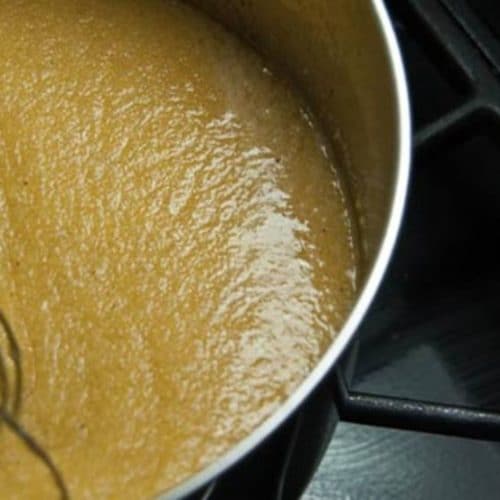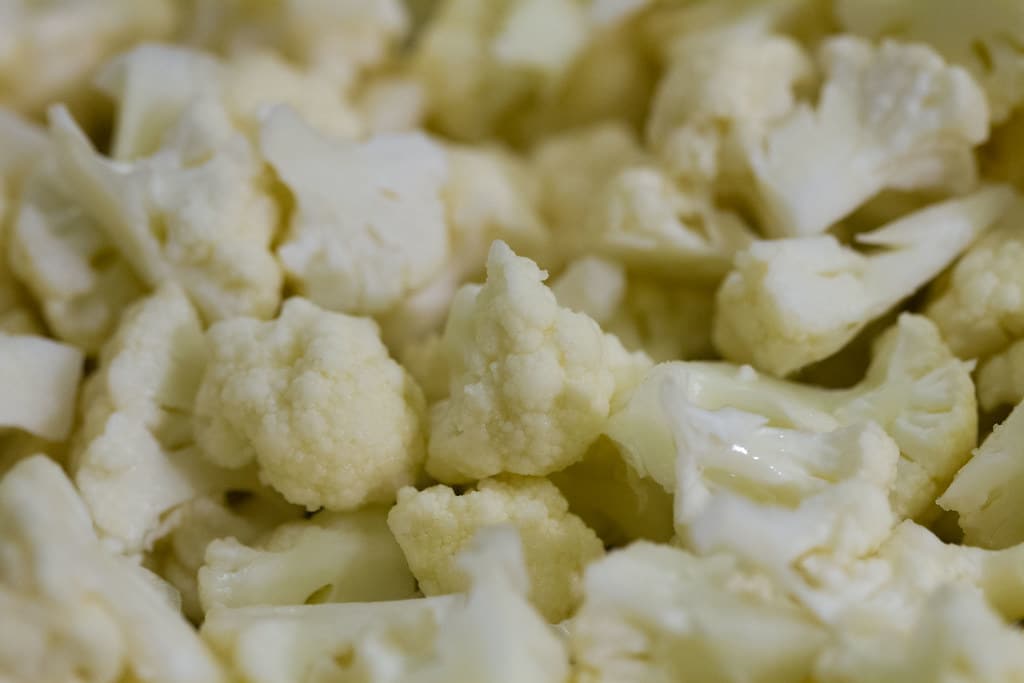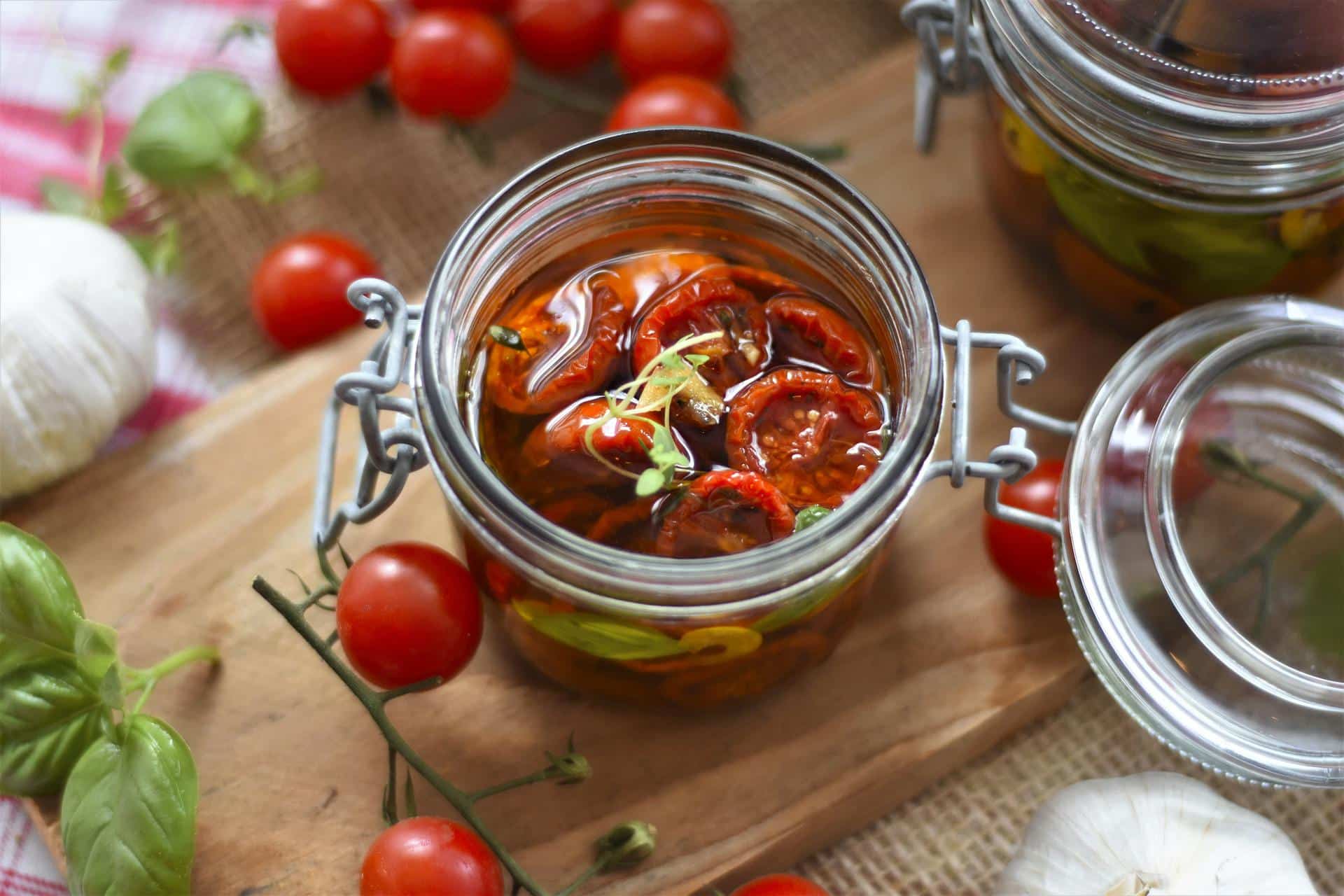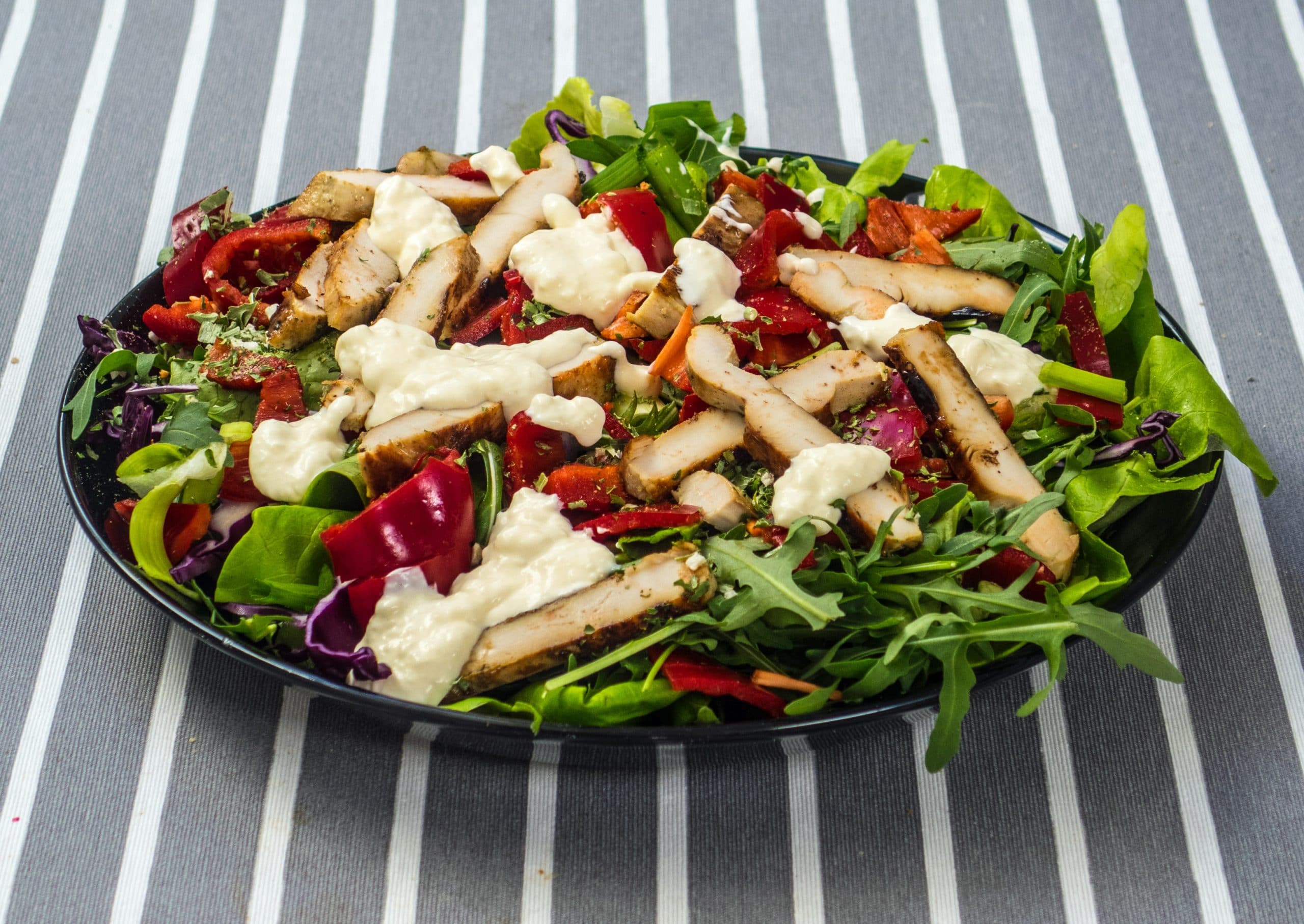- Air Fryer Frozen Fish Fillets No Breading - July 22, 2024
- Slow Cooker Potatoes Recipe - July 22, 2024
- El Torito Corn Cake Recipe - July 22, 2024
Creating a **small batch of roux** in the microwave is super easy and an awesome alternative to stovetop preparation.
It’s very easy to make a roux in the microwave.
Yes, you heard it right, Of course, you can!
The microwave is much faster than an oven, and it’s much easier than a stovetop.
Roux, a sautéed flour and oil mixture, is commonly used to thicken soups and stews.
Cooking takes the raw edge off the flour and gives it a nutty, roasted flavor, making it a good thickener.
A roux, on the other hand, is made at the beginning of a dish, before any liquids or other ingredients are added to the pot.
What if you come to the end of the recipe and discover that your stew or sauce is too thin?
A corn-starch slurry could be used, although it tends to produce a sticky, shiny appearance (think stir-fry sauces).
An undercooked roux is also unwanted since it gives a raw flour taste to the dish.
How To Make Roux In A Microwave- The Easiest Way!
You can expect to be standing over the pan and stirring continuously for at least half an hour when preparing roux on the stovetop.
You’ll never think of your hand the same way again.
The microwave method of preparing roux takes less time overall and needs less stirring, which appeals to those who have other things to do than a whisk.
However, making a roux in a shorter amount of time is possible.
And, here you are gonna see how!!
Ingredients
Steps to be followed:
Nutrition facts:
Facts regarding Roux:
When it comes to roux, there are a few things to keep an eye out for:
The roux will likely turn frothy after a few minutes and will stay that way for several minutes.
The roux will begin to darken and produce a nutlike aroma after about 10 minutes.
After around 20 minutes, the roux will begin to cook more quickly and must be closely monitored to avoid burning.
Reduce the heat if necessary—a burned roux is unfit for human consumption.
If the roux begins to smoke, turn down the heat or turn it off for a few minutes to allow the roux to cool.
The taste may be harmed if the oil becomes hotter past the point when it starts to smoke.
What is the best way to serve roux made dishes?
Roux is traditionally a work process that needs regular attention and stirring to cook down the fat (which can range from butter to bacon grease or drippings) and flour until it reaches the ideal dark brown color and thick texture.
Without burning the fat, the raw taste of the flour must be completely reduced.
You want it to be dark brown once it’s beyond the blonde roux stage—which is the sweet spot if you’re creating bechamel cheese sauces for baked macaroni and cheese.
Gumbo and other thick Southern stews like burgoo, as well as Creole dishes like étouffée, can be made with it.
How to Prepare Roux in advance:
If you’re cooking the roux ahead of time, put it in a big glass or plastic bowl to stop the cooking process and chill it down, stirring occasionally.
Roux can be stored for two months in the refrigerator or six months in the freezer, covered.
If freezing the roux, put 1 tablespoon into each quadrant of an ice cube tray and place in a freezer bag once firm.
Remove 8 cubes (8 tablespoons, or 1/2 cup) of roux when a recipe calls for 1/2 cup.
If your stew, soup, or sauce needs a little thickening, use a cube or two at a time.
Conclusion
The perfect method for thickening gravy in the slow cooker or Crock Pot is a butter and flour Microwave Roux.
Roux is the base for a lot of Cajun meals.
If you want to make gumbo, stews, fricassees, or, as the old joke goes, a chocolate cake in Cajun nation, you must first cook a roux.
Proceed with caution, keeping in mind that you will be working with extremely hot oil; use oven mitts and pot holders, and use additional caution when touching the hot container.
FAQs
Is it possible to make a microwave roux with oil?
Yes! This approach can be used to prepare a roux using oil for any reason, diet or otherwise.
You also don’t need to heat the oil unless you’re using coconut oil.
What is the best way to warm up a roux?
Place a thin layer of water or stock in a heavy-bottomed saucepan before adding the chilled soup to reheat roux-based or starch-based thick soups.
As the soup cooks, the thin layer of liquid on the bottom of the pot will help to keep it from burning.
When cooking a roux, what temperature do you use?
To prepare an oven roux, whisk flour and oil together in a cast iron pan or Dutch oven, then bake for about 2-1/2 hours at 350 degrees F.
Every 20 minutes, give it a thorough stir.
What is the shelf life of homemade roux in the refrigerator?
Prepare the roux ahead of time and set it aside to cool somewhat before keeping it in an airtight jar in the refrigerator.
It keeps for up to six months in the fridge and a year in the freezer.
What are the signs that the roux is ready?
When the roux turns brown and smells like roasted peanuts, it’s done, which takes approximately 12 to 15 minutes.
The creamy sauce that gives this baked broccoli gratin dish its trademark silky texture is made with a white roux.

How to make the best Roux
Equipment
- 1 microwave
Ingredients
- 2/3 cup flour
- 3/4 cup oil Canola or Vegetable
- 2 cups onions chopped
- 1 cup celery chopped
- 1/2 cup green bell pepper chopped
- 4 garlic cloves minced
- 1/4 cup parsley chopped
- 1/2 cup green onion tops included, chopped
- 1/4 cup hot water approximately
Instructions
- In a microwave-safe dish with a handle, combine 3/4 cup canola or vegetable oil and 1 cup all-purpose flour. Whisk everything together until it’s completely smooth. The mixture will resemble thin condensed milk.
- Set your microwave timer for 4 minutes after placing the cup in the microwave. Remove the cup and thoroughly whisk the mixture. Keep in mind that the mixture is extremely hot! (Because microwaves heat at different temperatures, you may want to start with 2 or 3 minutes until you get a sense of how powerful your microwave is; some can do it for up to seven minutes.)
- Return to the microwave for two further one-minute sessions. After each session, firmly stir again. Your mixture has already begun to brown at this point. Repeat the sessions for only 30 seconds at a time now, stirring after each one, until the roux resembles a dark copper penny (darker or lighter, if you prefer). During the most recent heating cycles.
- At this point, you may also freeze one tablespoon of the cooled roux in ice trays. Pop them out of the freezer and keep them in a freezer bag for whenever you need a few tablespoons of roux. Before usage, bring refrigerated stored roux to room temperature.
- In the last cooking session, add 1/2 cup of the onion, bell pepper, and celery mixture. This step enhances the entire roux.
- Transfer to a cooking saucepan and add enough warm water to thin the roux to the desired thickness. It is critical to fully stir before beginning the following session. 2 1/2 to 3 gallons of gumbo juice or one large fricassee or stew dish can be made using the following ingredients. Many cooks add a blend of onion, bell pepper, and celery near the conclusion of the cooking process. This allows the taste to permeate the entire roux. You can double or quadruple the recipe and keep the leftover roux in an airtight container in your icebox for up to three weeks to use in other dishes.
- Roux is a thickening agent that can be used to flavor or thicken gravies. The more flavorful the roux, the darker it is. A lighter roux has a greater ability to thicken the sauce.
- A roux-based meal always tastes better the next day, or the next time it’s reheated if it’s been frozen. The flavor becomes too bitter to use if you push the roux too far or if it smells burnt. Toss it aside and start over.



